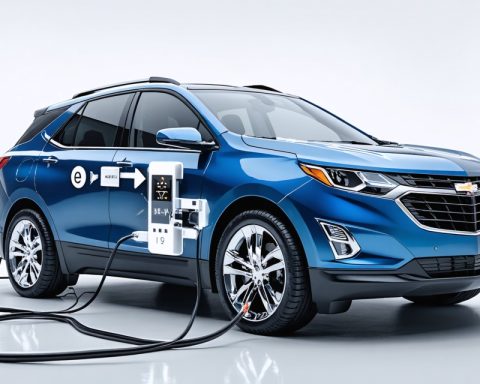As societies embrace electric vehicles, a pressing issue emerges: the massive spike in demand for lithium-ion batteries, leading to increased electronic waste. Addressing this challenge, a collaborative research team from Lingnan University and the University of Shanghai for Science and Technology has proposed a groundbreaking solution.
This team, led by Assistant Professor Tang Xiaopeng, has pioneered a novel AI-based model dedicated to the efficient categorization of retired batteries, aiming to minimize environmental harm. Their work, recently published in a prominent IEEE journal, introduces a “Lifespan-based Battery Classification” system for enhancing the reuse of these retired energy sources.
Using a cutting-edge semi-supervised learning model, specifically a convolutional neural network, the researchers have developed an efficient way to classify spent batteries based on their lifespan. By analyzing data from just the first three charge-discharge cycles, the model accurately identifies batteries suitable for secondary use, providing a more efficient alternative to traditional detection methods. This innovation is capable of reducing battery lifecycle depletion by at least 20%, thus extending the batteries’ operational life.
When batteries deplete to 80% of their initial capacity, their efficiency in electric vehicles reduces significantly. However, these retired batteries hold potential for less demanding applications such as energy storage or backup power systems. The new AI model effectively addresses inconsistencies in battery performance, paving the way for better energy sustainability solutions.
Professor Tang emphasizes that their research not only solves major detection challenges but offers a promising pathway toward environmental conservation. Currently, Lingnan University is actively seeking patent approval in Hong Kong and exploring partnerships with various governmental sectors to implement this innovative technology.
Maximizing Lithium-Ion Battery Life: Tips, Tricks, and Insights
With the rapid adoption of electric vehicles around the globe, the demand for lithium-ion batteries has skyrocketed, posing a significant challenge in terms of electronic waste management. The recent breakthrough by the collaborative team from Lingnan University and the University of Shanghai for Science and Technology offers promising solutions, but there are also practical steps individuals and organizations can take to maximize battery life and minimize waste.
Tips to Extend Battery Life
1. Avoid Full Charging and Deep Discharging: Lithium-ion batteries last longer when they are not fully charged or fully discharged. Aim to keep your battery level between 20% and 80% for optimal performance.
2. Keep Cool: High temperatures can degrade your battery. Avoid exposing your devices to extreme heat and, if possible, store them in a cool environment.
3. Use Energy-Saving Modes: Modern devices often come with power-saving settings that can extend battery life significantly without affecting performance.
Life Hacks for Battery Efficiency
– Regular Calibration: Periodically letting your battery run from 100% to 0% and then fully charging it can help recalibrate smart batteries, providing more accurate readings of charge levels.
– Turn Off Unused Features: Bluetooth, Wi-Fi, and GPS consume a lot of power. Turn these off when not in use to conserve battery life.
Interesting Facts About Lithium-Ion Batteries
– Longer Lifespan in Secondary Applications: Even when a battery is no longer suitable for electric vehicles, it can still function well in less demanding roles, such as in energy storage systems.
– AI in Battery Reuse: AI-based models, like the one developed by Professor Tang’s team, are revolutionizing how we identify batteries fit for secondary use, ensuring that fewer batteries go to waste.
– Environmental Impact: Recycling lithium-ion batteries can significantly reduce the environmental footprint, minimizing the need for raw material extraction and reducing landfill contributions.
For more information on technological advancements in environmental sustainability and battery technology, visit IEEE’s Official Website.
By incorporating these tips and adopting innovative solutions, we can collectively reduce electronic waste and pave the way for a more sustainable battery ecosystem. Whether you’re an EV owner or simply using devices powered by lithium-ion technology, every small action contributes to a larger environmental impact.









